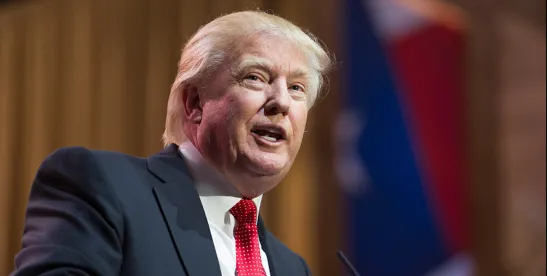While independent regulatory agencies, like the Consumer Product Safety Commission (CPSC or the Commission), have typically considered themselves exempt from executive orders, recent events indicate the CPSC is likely not free from the Trump Administration’s push for an Executive Branch for the people, by the people. Statements from acting Commission leadership seemingly indicate a willingness to work with President Trump, though the CPSC has taken only limited actions to implement the many directives ordered by the President to date. Stakeholders in the consumer products industry should be forewarned that their dealings with the Commission and its anticipated regulatory agenda could soon change, though they should continue to take steps to prepare for the implementation of key new rules until the Commission provides further guidance.
An Executive Branch for the People, by the People
In the Consumer Product Safety Act (CPSA), Congress established the CPSC and directed the Commission to operate with independence “to protect the public against unreasonable risks of injuries and deaths associated with consumer products.” Yet, the Trump Administration’s recent actions first, attempting to dismantle two other independent agencies, the U.S. Agency for International Development (USAID) and Consumer Financial Protection Bureau (CFPB), and subsequently issuing a yet unnumbered executive order, entitled “Ensuring Accountability for All Agencies,” make clear that the new administration will seek to make independent agencies less independent. Indeed, the February 18, 2025 Executive Order criticizes the very existence of independent regulatory agencies and laments the lack of “sufficient accountability to the President, and through him, to the American people.” The Order seeks to give the President broad oversight over independent agencies, requiring submission of major regulations to the White House Office of Management and Budget (OMB) for review. Further, the Order seeks to require independent agencies to hire a White House liaison and bars such agencies from taking legal positions that differ from any taken by the President or Attorney General. Such directives create an inherent risk of conflict with the CPSC’s stated mission and congressionally mandated independence in the CPSA. That said, recent communications from new Commission leadership indicate a potential willingness to cooperate—at least for the time being—either through express agreement or by trying to lay low.
On January 21, 2025, the day after President Trump took office and issued a flurry of new executive orders, as is customary when the political party of the President changes, Alex Hoehn-Saric, a 2021 Biden appointee, stepped down as Chair of the Commission. The Commission then announced Peter Feldman, a 2018 Trump appointee, as the acting chair the following day. Acting Chair Feldman has since issued three statements: The first statement, issued on January 22, 2025, announced promotions and appointments among key senior staff. The second statement, issued on January 24, 2025, announced the termination of all diversity, equity and inclusion (DEI) programs and activities, in line with Executive Order No. 14148, which revoked a series of prior Executive Orders implementing DEI initiatives, and Executive Order No. 14151, “Ending Radical and Wasteful Government DEI Programs and Preferences,” among other executive orders. See President Trump’s “Rescission” Executive Order (Jan. 21, 2025). The third statement, issued on February 4, 2025, “applaud[ed] President Trump’s bold action to revoke the de minimis privilege for all imports from China,”[1] stating the Commission “has long been concerned about the enforcement challenges when Chinese firms, with little or no U.S. presence, distribute consumer products under the de minimis provision,” signaling the CPSC’s support of Executive Order No. 14195 and Executive Order No. 14200, ordered February 1, 2025 and February 5, 2025 respectively.
Notably, despite its prior availability, the CPSC’s Operating Plan for Fiscal Year 2025, which laid out the Commission’s intended direction and priorities, including its DEI programs and regulatory priorities, is no longer available on its website as part of the Commission’s overall website content review pursuant to recent Executive Orders.
Other Potentially Relevant Orders
On January 20, 2025, and in the days since, President Trump signed a flurry of other executive orders, which could be of relevance to a less independent CPSC. Among them are the following three Orders:
- On January 20, 2025, President Trump issued an Order that called for a “regulatory freeze” and had three main directives instructing federal agencies: (1) not to propose or issue any new rules “until a department or agency head appointed or designated by the President after noon on January 20, 2025, reviews and approves the rule”; (2) immediately withdraw any new rules sent but not yet published in the Federal Register so that they can be reviewed and approved per the first directive; and (3) “consider” a 60 day postponement for the effective date of any rules that have been published in the Federal Register or have not taken effect and further “consider” opening a comment period for any such rules.
- Also on January 20, 2025, President Trump signed Executive Order 14192, “Unleashing Prosperity Through Deregulation,” which launches a “massive 10-to-1 deregulation initiative” requiring agencies to “identify at least 10 existing rules, regulations, or guidance documents to be repealed” whenever they issue a new rule, regulation, or guidance.
- On February 11, 2015, President Trump issued an Order implementing his “Department of Government Efficiency” (DOGE) workforce optimization initiative. Among other things, the Order directs an approximately 75% reduction in staff (indicating that for every one staffer hired, four must be eliminated). The Order also directs Agency Heads to, within 30 days, submit “a report that identifies any statutes that establish the agency, or subcomponents of the agency, as statutorily required entities . . . and whether the agency or any of its subcomponents should be eliminated or consolidated.” Notably, the Order excludes public safety functions, which would seem to speak directly to the CPSC’s stated mission, although that same argument could be made about the Federal Emergency Management Agency (FEMA), which has drawn President Trump’s recent attention (and criticism).
While the CPSC’s relatively small size and budget should not place it high on the list for the same deregulation initiatives and staff cuts as other agencies, there is no telling what might happen in the coming months.
Next Steps
Though we do not anticipate the CPSC’s regulatory agenda as it relates to new e-filing requirements for certificates of compliance, e-bikes, and certain infant products to change at this time, based on the CPSC’s continued focus on and discussion of these initiatives at this year’s International Consumer Product Health and Safety Organization (ICPHSO) Annual Symposium, it is anticipated that the Commission will reconsider the remainder of its regulatory agenda and priorities.
Stakeholders should continue preparations for the implementation of the new e-filing requirements for certificates of compliance which go into effect July 8, 2026 for products not imported into a Free Trade Zone (FTZ), and July 8, 2027 for products imported into an FTZ until the CPSC provides contrary guidance or otherwise indicates a delay or freeze to this regulation.
The CPSC’s responses to Executive Orders and the Trump Administration’s directives are rapidly evolving. With this continued uncertainty, stakeholders should continue monitoring for updates from the Commission. Stakeholders should also continue their preparations for the implementation of major regulations until the CPSC issues further guidance.
[1] The referenced “de minimis privilege” refers to the current exemption under the Tariff Act (19 U.S.C. § 1321) for certain shipments valued below $800, which permits the importation of such shipments without filing otherwise required paperwork concerning the product and exempts such products from inspection at U.S. points of entry. The de minimis shipment exemption is limited to shipments with an aggregate value less than $800 per day by a single importer, and is generally taken advantage of by international e-commerce retailers.







 />i
/>i

